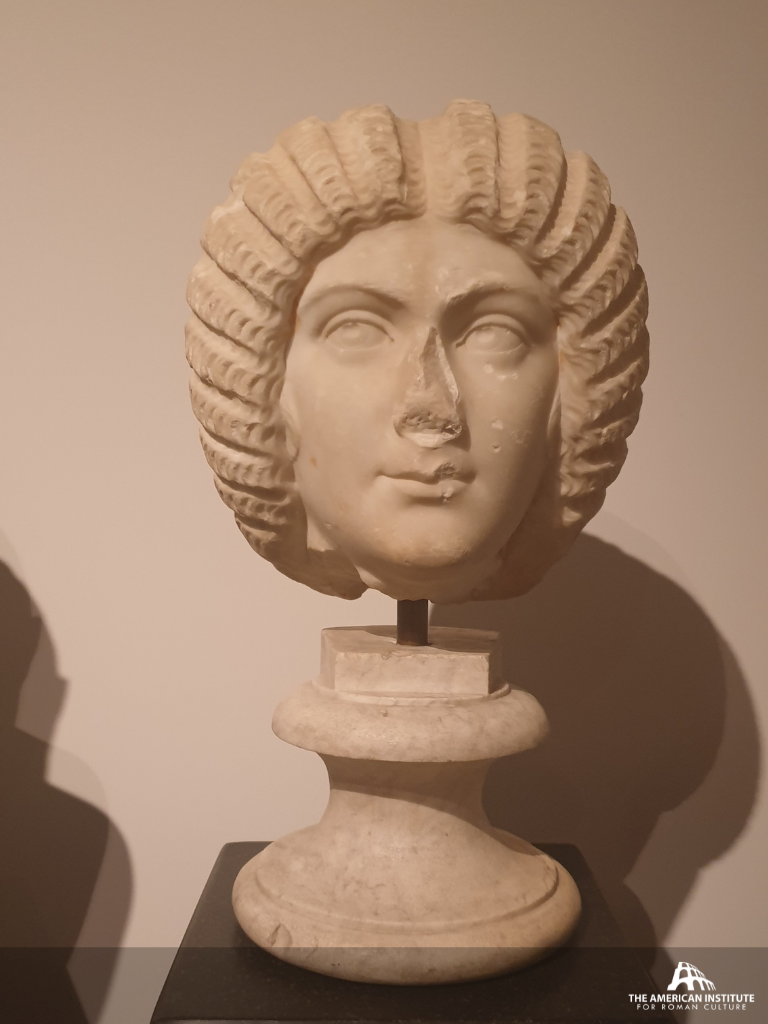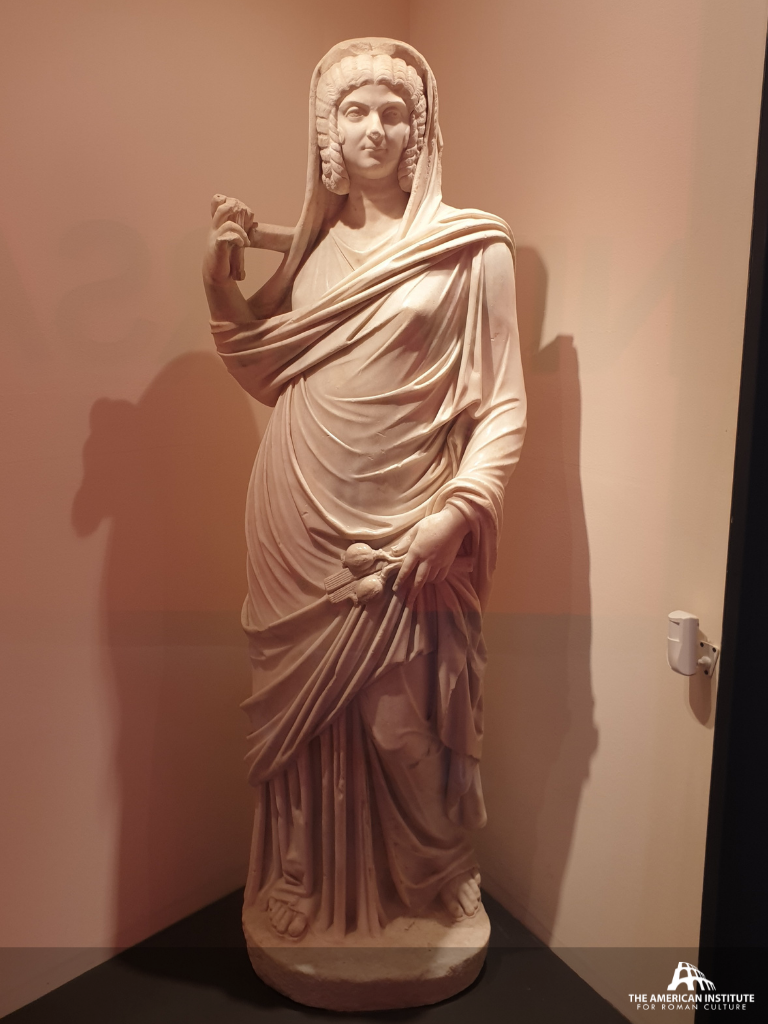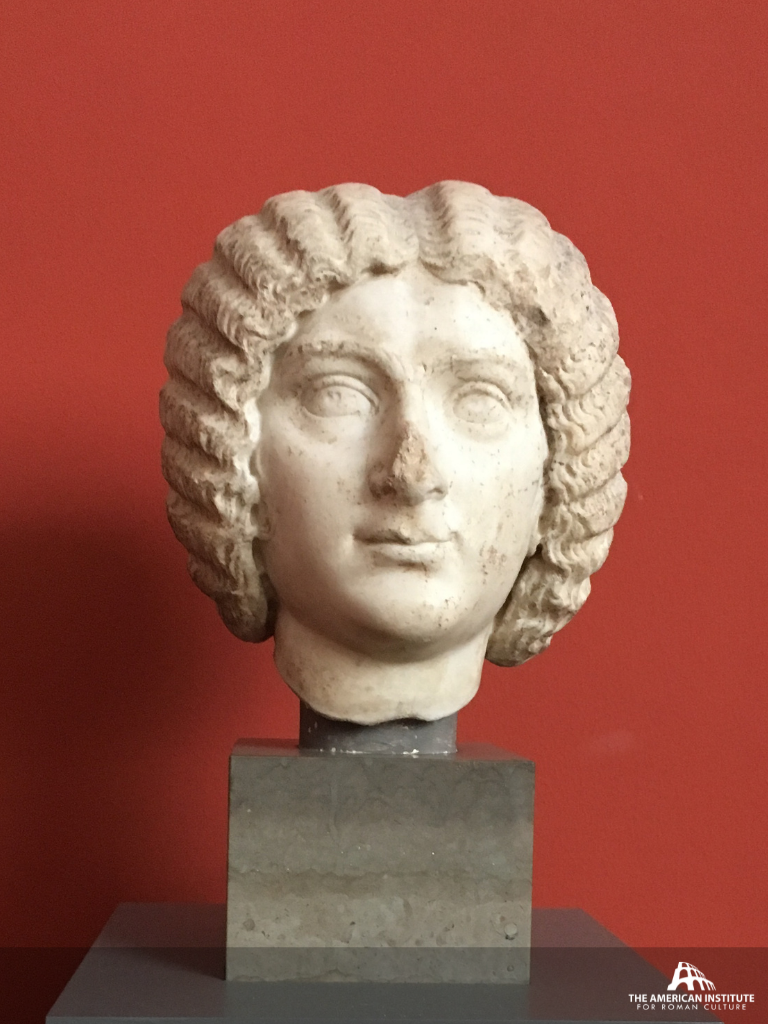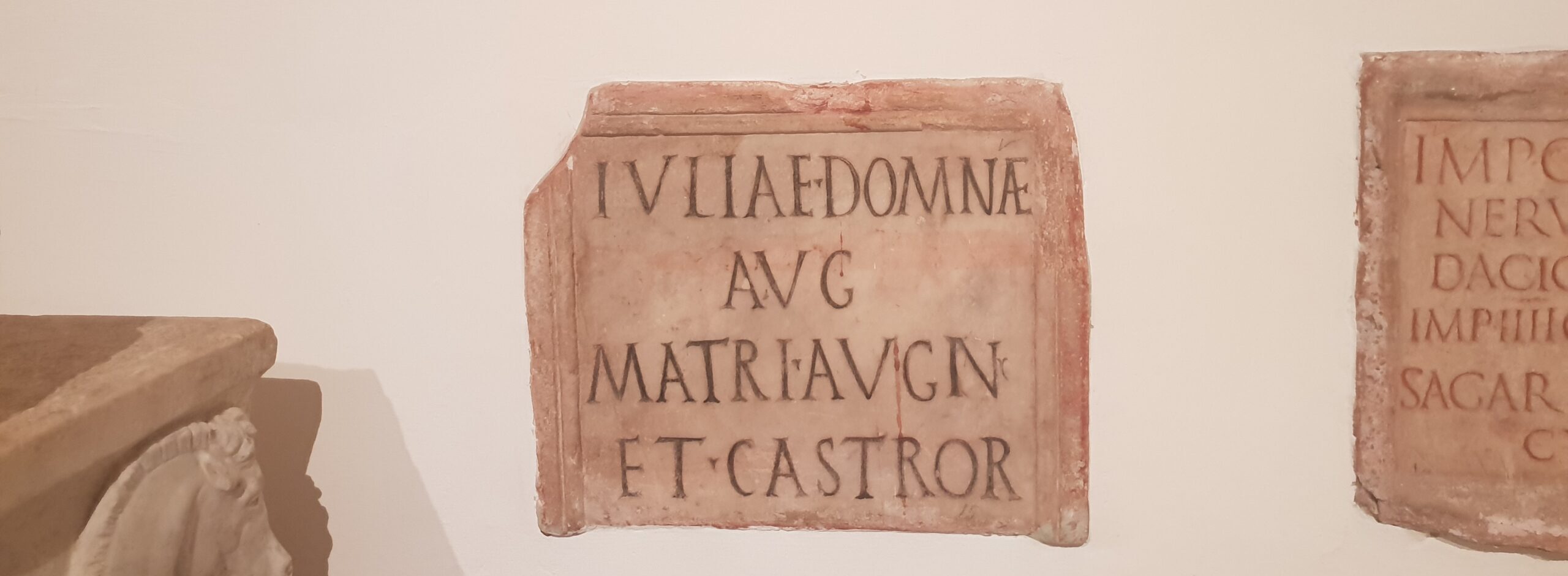Official Name: JULIA DOMNA AUGUSTA
Birthdate: Circa 170 CE.
Birthplace: Emesa, Syria (modern-day Homs).
(Historia Augusta, Life of Septimius Severus, 3.9) (Cassius Dio, Roman History, 79.30)
Reign: Julia Domna became empress in 193 CE, when her husband Septimius Severus won the throne in a civil war. Following his death in 211 CE, her sons Caracalla and Geta inherited the position of emperor.
(Cassius Dio, Roman History, 74.17 & 77.15)
Marriages:
Septimius Severus (187-211 CE)
(Historia Augusta, Life of Septimius Severus, 3.9) (Cassius Dio, Roman History, 77.15)
Children:
Julia Domna and Septimius Severus had two sons together. Both would serve as emperor after their father’s death.
Caracalla (188-217 CE)
(Historia Augusta, Life of Septimius Severus, 3.9 & 4.2)
Geta (189-211 CE)
(Historia Augusta, Life of Antoninus Geta, 3.1)
Death:
Julia Domna committed suicide in Antioch in 217 CE after hearing that her son, Caracalla, had been assassinated by his soldiers.
(Cassius Dio, Roman History, 79.23-24)

Head of Julia Domna, Palatine Antiquarium, Rome, April 2019

Statue of Julia Domna, Colosseum Antiquarium (Roma Universalis Exhibition), Rome, February 2019

Head of Julia Domna, NY Carlsberg Glyptothek, Copenhagen, September 2018
187
(Historia Augusta, Life of Septimius Severus, 3.9)
Marcus Aurelius 676)
211
211
(Cassius Dio, Roman History, 78.2)
This content is brought to you by The American Institute for Roman Culture, a 501(C)3 US Non-Profit Organization.
Please support our mission to aid learning and understanding of ancient Rome through free-to-access content by donating today.
Cite This Page
Cite this page as: Darius Arya, The American Institute for Roman Culture, “Julia Domna” Ancient Rome Live. Last modified 3/29/2022. https://ancientromelive.org/juliadomna/
License
Created by The American Institute of Roman Culture, published on 3/29/2022 under the following license: Creative Commons: Attribution-NonCommercial-ShareAlike. This license lets others remix, tweak, and build upon this content non-commercially, as long as they credit the author and license their new creations under the identical terms. Please note that content linked from this page may have different licensing terms.


